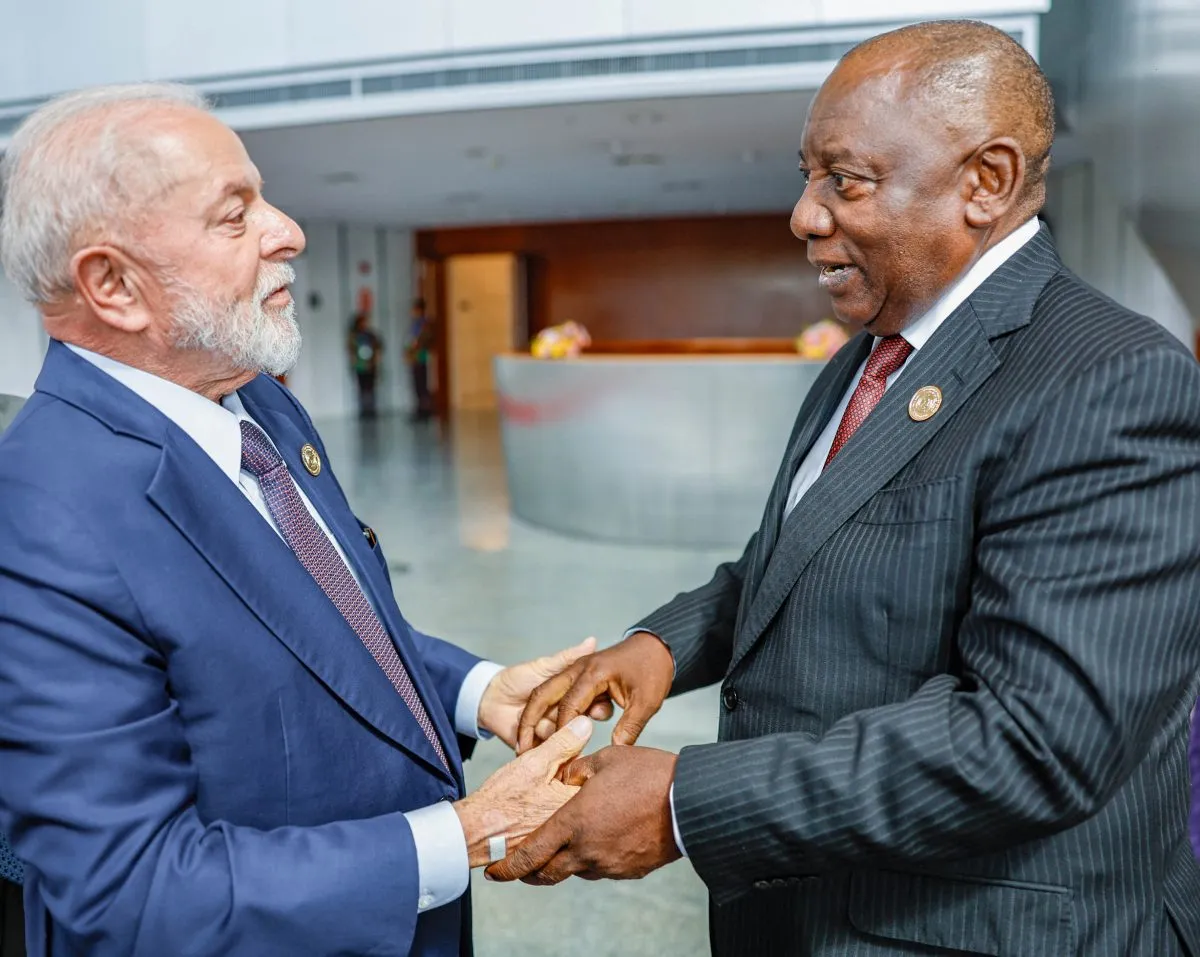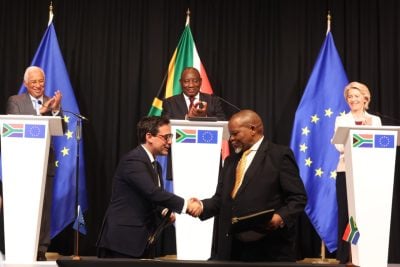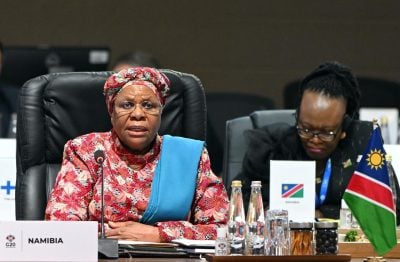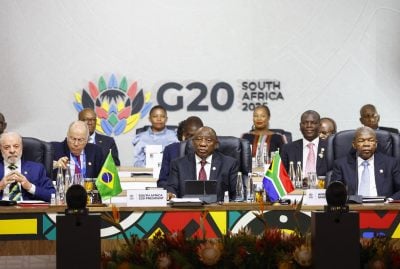The 12th Brazil Africa Forum drew business leaders, governments, and financial institutions to São Paulo in mid-October to debate and strengthen the ties between the partners. It is a relationship that in recent years has had its fair share of challenges, but the mood at the forum was unfailingly upbeat, reflecting the deep-seated historical ties between the two regions.
The current environment is auspicious. Recent visits to Africa by Brazilian President Luiz Inácio Lula da Silva have helped to revitalise Brazil’s relations with the continent.
Lula has made promises of substantial investments and renewed financing during visits to South Africa, Ethiopia, and Angola. He has pledged investments of over $1.8bn in military, security, pharmaceuticals, construction, and agribusiness cooperation.
During Lula’s first two presidential administrations from 2003 to 2010, Brazil opened or reactivated more than 15 embassies in African countries.
The theme of the forum was “Infrastructure investment to boost sustainable development in Brazil and Africa”. Its aim was to stimulate partnerships between Brazil, Africa and other regions, with a particular emphasis on major projects and economic development.
Opening the forum, Brazil’s foreign minister Mauro Vieira offered a rosy interpretation of relations. Quoting data from the country’s Central Bank, the minister said that African investments in Brazil had more than trebled from $2.3bn in 2021 to $7bn in 2023. The minister also reminded the forum that Brazil had contributed $10bn to the African Development Bank during its latest capital round.
In the private sector, he highlighted Airports Company South Africa winning a bid for the expansion, maintenance and operations of São Paulo’s international terminal at Guarulhos, South America’s busiest airport serving more than 40m passengers a year.
Trade lags
Nevertheless, trade figures show there is much room for improvement. Between 2013 and 2023, the minister said, Brazil’s trade volume with Africa tumbled from $28bn to $21bn. Brazilian trade with the Southern African Customs Union, for example, dropped by 11.1% in the first nine months of 2024 compared to the previous year. And Brazilian exports to Nigeria, one of Africa’s largest economies, fell by 8.5%.
This drop occurred while fellow BRICS nations China and Russia deepened their African trade ties, and Turkey and the Gulf nations ramped up their investments in Africa.
It is clear that Brazil must overcome significant challenges to regain its economic influence on the continent. Compared to India’s $100bn, and China’s $243bn, Carlos Duarte, the secretary for Africa and the Middle East at Brazil’s Ministry of Foreign Affairs, said that Brazil’s $21bn is “very modest, but even so, there are encouraging data and signs.”
Duarte said the African Continental Free Trade Area represents a huge opportunity for Brazil, and for Mercosur, South America’s trade bloc comprising Brazil, Argentina, Bolivia, Paraguay and Uruguay (Venezuela, another full member, has been suspended since 1 December 2016).
“In 2022, more than two-thirds of Mercosur’s exports to Africa went to countries with which the bloc has no trade agreement, so there is significant room for expansion,” Duarte says.
With Africa accounting for only 3.5% of Brazil’s global trade in 2023, there is “evident potential”, he added, for Brazil to boost exports to its main customers Algeria, Egypt, South Africa, Morocco, and Nigeria. Ties with lusophone Angola and Mozambique could also strengthen further.
Agriculture and fertilisers could be the crux of a future relationship – Moroccan phosphate giant OCP is currently building a fertiliser plant in the city of São Luis, in the northeast of Brazil.
That project hints at the great potential for agricultural cooperation, in light of their similar environmental, climate and social conditions. The two regions face similar development challenges, such as limited infrastructure, low educational levels and weak governmental support.
The Brazil-Africa Institute (IBRAF), which hosted the Forum, is organising visits of young African farmers to Brazil with a focus this year on cassava production.
“This initiative underscores IBRAF’s dedication to showcasing effective Brazilian practices to the African continent. The logic is simple: if it works in Brazil, there’s a strong possibility it can also be successful in Africa, with due respect for local specificities,” says João Bosco Monte, the founder and president of IBRAF.
Petrobras targets Africa
Agricultural cooperation would deepen a relationship which has recently been more dominated by the trade in oil and mining commodities – leading crude producers Angola, Nigeria and Algeria join South Africa and Morocco as the largest exporters to Brazil.
Brazil’s investments in Africa reached $1.9bn in 2021, according to French data provider CEPII, with Angola being the primary destination. Angolan exports reached $799m in 2022 – of this, crude oil represented the largest export at $539m, followed by refined petroleum at $238m.
Brazil’s state-run oil company Petrobras is hunting opportunities in African oil and gas exploration. In early October, it sealed the acquisition of a 10% stake in the offshore Deep Western Orange Basin (DPOB) oil block in South Africa. The purchase of the stake followed a competitive “farm out” process held by French oil major Total which operates the project and will retain a 40% stake in the block. It also builds upon Petrobras’s investment in oil and gas blocks in the São Tomé and Príncipe archipelago.
In an interview with Bloomberg, Petrobras’s head of exploration and production, Sylvia dos Anjos, said the firm is in talks to buy stakes in African exploration blocks from companies including ExxonMobil, Shell, TotalEnergies and Equinor in nations including Namibia, South Africa and Angola.
Brazil’s Vale, one of the world’s biggest mining companies, previously had a strong footprint in Africa, but in 2021 sold its Moatize coal mine in Mozambique and the Nacala Rail Logistics Corridor (NLC) for $270m. It stated that it wished to focus on its core businesses and on its ambition to become a leader in low-carbon mining – it now has no major projects on the continent. n
Want to continue reading? Subscribe today.
You've read all your free articles for this month! Subscribe now to enjoy full access to our content.
Digital Monthly
£8.00 / month
Receive full unlimited access to our articles, opinions, podcasts and more.
Digital Yearly
£70.00 / year
Our best value offer - save £26 and gain access to all of our digital content for an entire year!

 Sign in with Google
Sign in with Google 



